
Aimeliik: The Tranquil Heart of Palau
Nestled in the western part of the island nation of Palau, Aimeliik is a serene and culturally rich destination that offers a unique glimpse into the traditional Palauan way of life. This charming village is surrounded by lush greenery and picturesque landscapes, making it a perfect escape for those looking to unwind and immerse themselves in nature. Aimeliik is home to several historical and cultural sites, including ancient stone monoliths known as 'Bai' and traditional meeting houses that showcase the region's architectural heritage. Visitors can explore the ruins of old villages and learn about the intriguing history and customs of the Palauan people. For nature enthusiasts, Aimeliik offers a variety of outdoor activities such as hiking, bird watching, and exploring hidden waterfalls. Its pristine environment is also a haven for wildlife, providing opportunities to spot rare birds and other native species. The warm and welcoming locals add to the charm of Aimeliik, making every visitor feel at home in this slice of paradise.
Local tips in Aimeliik
- Visit the ancient stone monoliths early in the morning to avoid the midday heat.
- Bring comfortable walking shoes for exploring the ruins and hiking trails.
- Don't forget your binoculars for bird watching; Aimeliik is home to many rare species.
- Engage with the locals to learn about Palauan traditions and customs.
- Carry insect repellent, as the lush environment can attract mosquitoes.
Aimeliik: The Tranquil Heart of Palau
Nestled in the western part of the island nation of Palau, Aimeliik is a serene and culturally rich destination that offers a unique glimpse into the traditional Palauan way of life. This charming village is surrounded by lush greenery and picturesque landscapes, making it a perfect escape for those looking to unwind and immerse themselves in nature. Aimeliik is home to several historical and cultural sites, including ancient stone monoliths known as 'Bai' and traditional meeting houses that showcase the region's architectural heritage. Visitors can explore the ruins of old villages and learn about the intriguing history and customs of the Palauan people. For nature enthusiasts, Aimeliik offers a variety of outdoor activities such as hiking, bird watching, and exploring hidden waterfalls. Its pristine environment is also a haven for wildlife, providing opportunities to spot rare birds and other native species. The warm and welcoming locals add to the charm of Aimeliik, making every visitor feel at home in this slice of paradise.
When is the best time to go to Aimeliik?
Iconic landmarks you can’t miss
Belau National Museum
Explore the vibrant history and culture of Palau at Belau National Museum, a must-visit for every traveler seeking to understand this beautiful island nation.
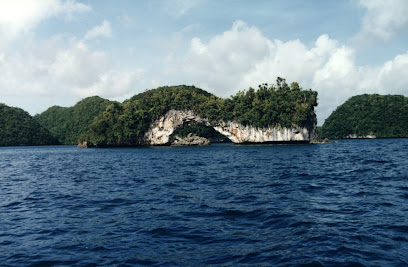
Japan-Palau Friendship Bridge
Explore the stunning Japan-Palau Friendship Bridge, a symbol of cultural exchange and breathtaking views in the heart of Palau.
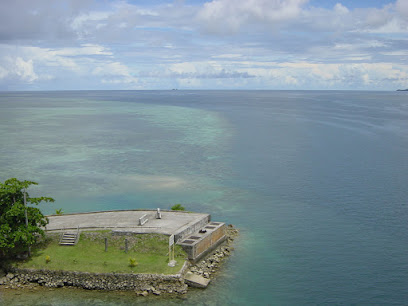
Palau Aquarium
Experience the vibrant marine life and conservation efforts at Palau Aquarium, a spectacular tourist attraction in Koror, Palau.
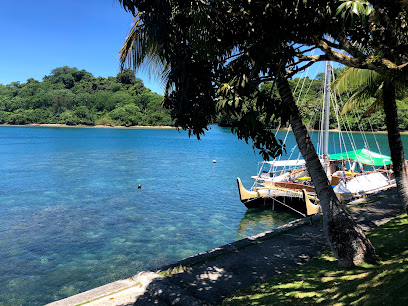
Etpison Museum
Explore the vibrant cultural tapestry of Palau at the Etpison Museum, where history, art, and tradition come alive.
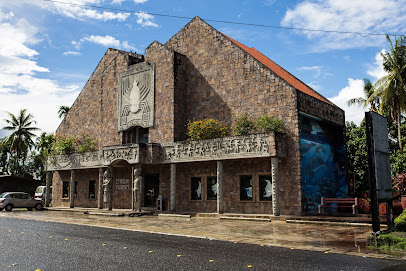
Palau National Capital
Explore Ngerulmud, Palau's tranquil capital, where stunning landscapes and cultural heritage intertwine, offering a unique perspective of this island nation.
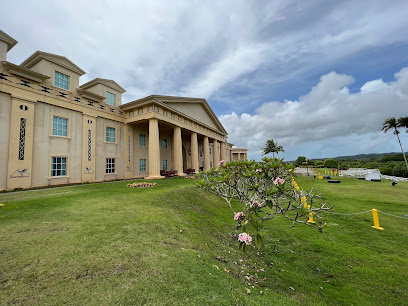
World War II Japanese Communications Center
Explore the World War II Japanese Communications Center in Airai, Palau—an essential stop for history lovers and curious travelers seeking to understand the island's wartime past.
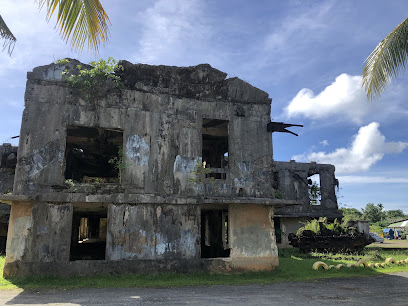
Airai Bai
Explore Airai Bai, a historic meeting house in Palau that embodies the island's rich traditions and cultural heritage.
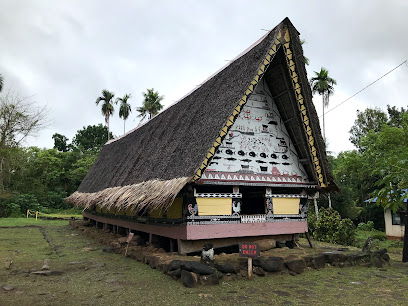
Ucheliungs
Explore the breathtaking landscapes and vibrant ecosystems of Ucheliungs, a must-see tourist attraction in Koror, Palau, for nature lovers and adventure seekers.
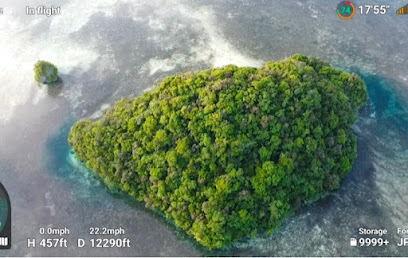
Malsol’s Tomb
Discover the rich history of Palau at Malsol's Tomb, a serene historical landmark showcasing ancient burial traditions and cultural heritage.
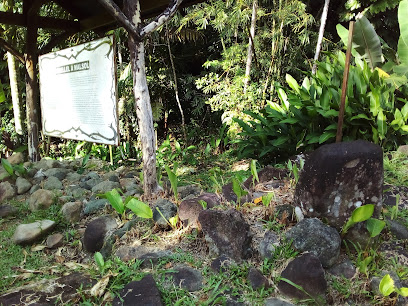
Aimeliik Terrace (Oublallang er a Ngebedech)
Discover the breathtaking views and rich cultural heritage at Aimeliik Terrace, a historical landmark in Palau's serene landscapes.
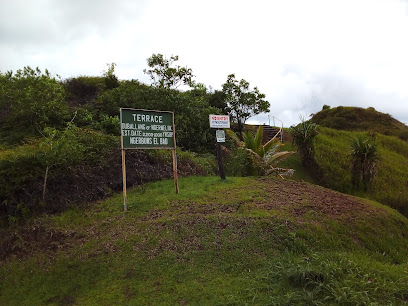
Odalmelech Historic Site
Discover the rich cultural heritage and serene landscapes of Odalmelech Historic Site in Palau, a hidden gem for every traveler.

Unmissable attractions to see
Milky Way
Explore the breathtaking beauty of the night sky at Milky Way in Koror, Palau, perfect for stargazing and reconnecting with nature.
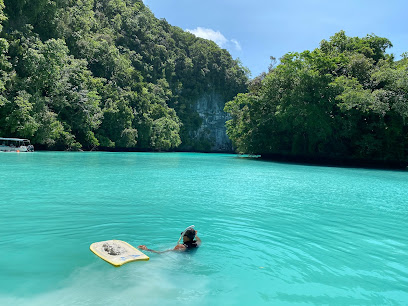
Ngardmau Waterfalls
Explore the breathtaking Ngardmau Waterfalls in Ngiwal, Palau - a paradise for nature lovers and adventure seekers alike.
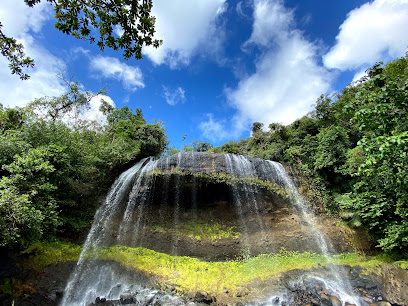
Palau Aquarium
Explore the vibrant marine life at Palau Aquarium, a must-visit attraction in Koror that showcases the beauty of the Pacific's underwater ecosystems.
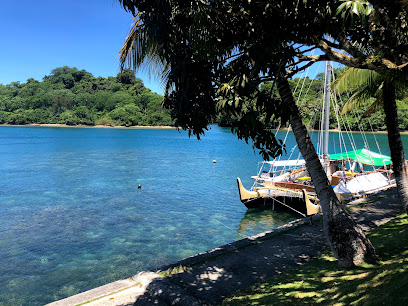
Badrulchau Stone Monoliths
Discover the ancient Badrulchau Stone Monoliths in Ngarchelong, Palau—an archaeological marvel steeped in mystery and history.
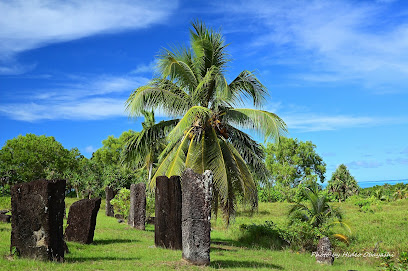
Ngardmau Waterfalls Ticket, Parking Lot
Experience the breathtaking beauty of Ngardmau Waterfalls in Palau, a serene escape surrounded by lush nature and stunning landscapes.
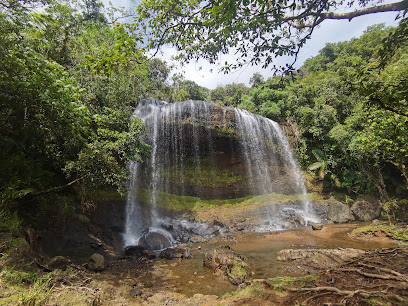
The Cemetery: Paradise Corner
Explore the serene Paradise Corner Cemetery in Koror, Palau, where tranquility meets local history amidst beautifully maintained grounds.
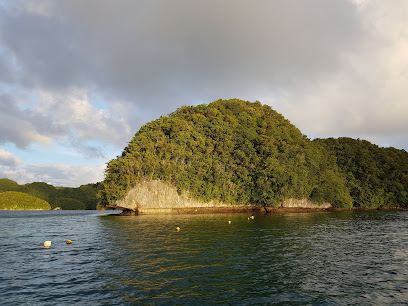
Bethlehem Park
Explore the natural beauty and tranquility of Bethlehem Park, a serene haven in Koror, Palau, perfect for relaxation and family outings.
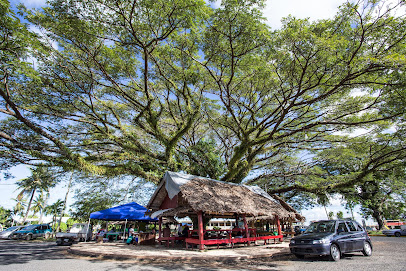
Korean World War II War Memorial
Discover the profound history and serene beauty of the Korean World War II War Memorial in Melekeok, Palau – a place for reflection and remembrance.
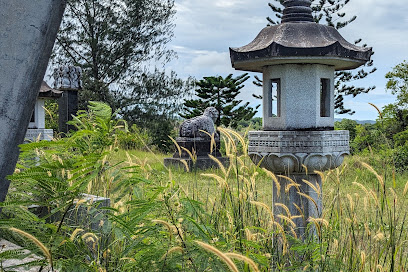
Soft Coral Arch
Explore Soft Coral Arch in Palau – a stunning underwater paradise filled with vibrant corals and diverse marine life, ideal for snorkeling and diving adventures.
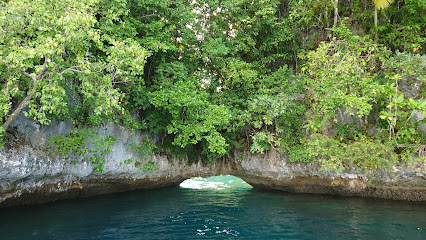
Beach Pavilion
Discover the beauty of Beach Pavilion in Palau, where serene beaches and vibrant marine life create the perfect getaway for every traveler.
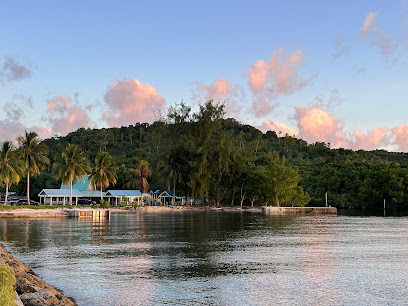
Shipwreck
Explore the enchanting Shipwreck in Palau, where history meets vibrant marine life in an unforgettable diving experience.
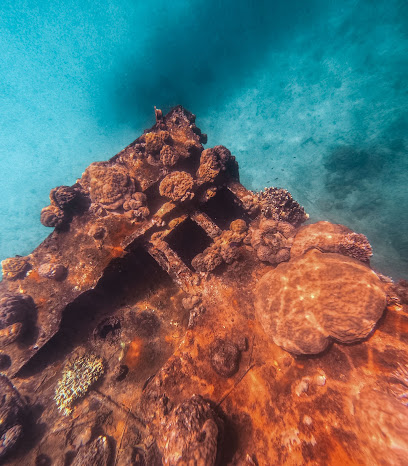
Ucheliungs
Explore the stunning natural beauty and rich cultural heritage of Ucheliungs, a breathtaking tourist attraction in Koror, Palau.
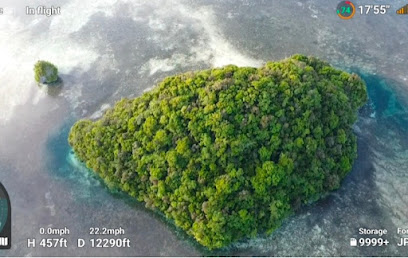
Long Lake
Experience the tranquility and natural beauty of Long Lake, an enchanting nature preserve in Koror, Palau, perfect for relaxation and adventure.
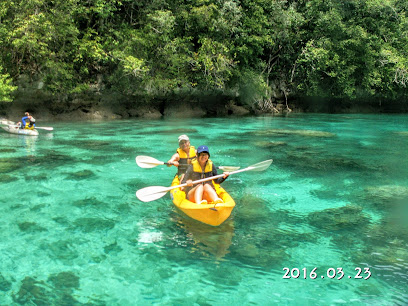
蜜月灣
Explore the breathtaking beauty of Palau, an enchanting paradise with pristine beaches, vibrant marine life, and rich cultural experiences.
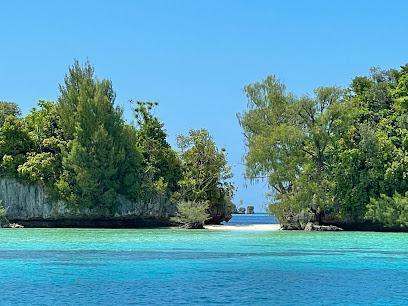
Siase corner
Experience the tranquil beauty of Siase Corner in Palau, a serene escape for nature lovers and culture seekers alike.
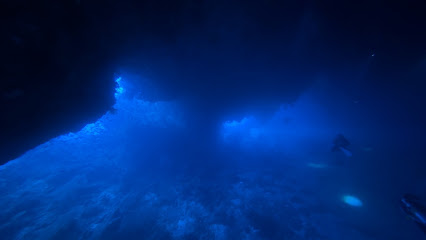
Essential places to dine
Drop Off Bar and Grill
Experience authentic Palauan cuisine at Drop Off Bar and Grill - where local flavors meet vibrant island culture in Koror.
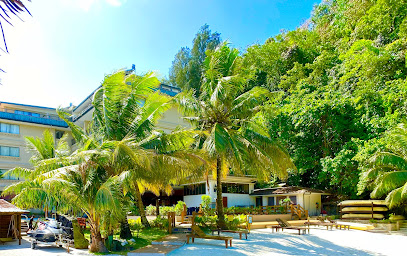
The Taj
Experience authentic Indian cuisine at The Taj in Koror, Palau – where every dish tells a story through rich spices and tradition.
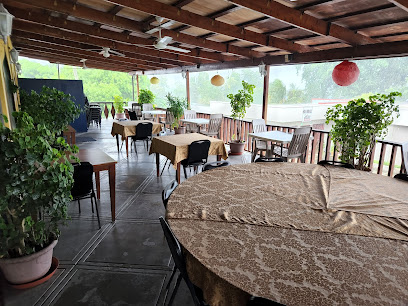
Elilai Seaside Dining
Discover exquisite flavors at Elilai Seaside Dining – where fine dining meets breathtaking ocean views in beautiful Palau.
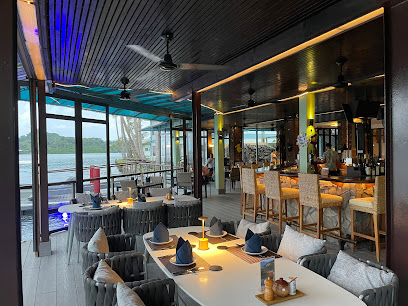
Tori Tori
Experience authentic Japanese cuisine at Tori Tori in Koror, Palau – where fresh ingredients meet traditional flavors.
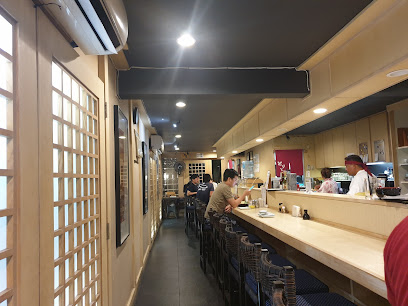
The Canoe House
Experience vibrant dining at The Canoe House in Koror, where fresh seafood meets live music in the heart of Palau.
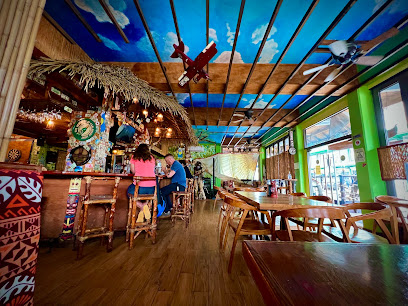
Rock Island Cafe
Discover authentic Palauan flavors at Rock Island Cafe in Koror - where every meal tells a story.
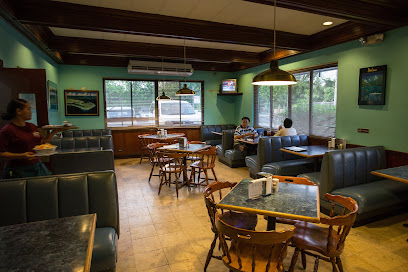
Coffee Berry
Discover the flavors of Palau at Coffee Berry, where local ingredients meet warm hospitality in every dish.
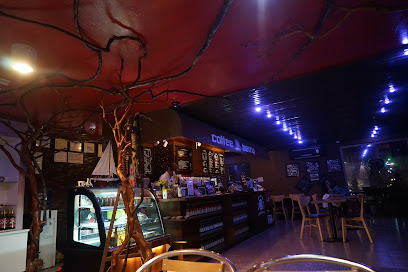
Carp Restaurant
Discover the vibrant flavors of Palau at Carp Restaurant – where fresh seafood meets local hospitality in an inviting atmosphere.
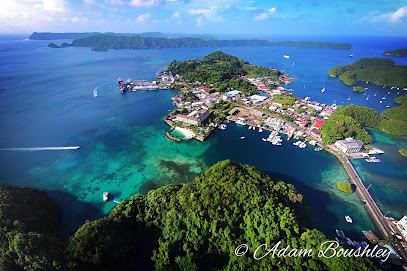
7 Eat Restaurant
Discover authentic Palauan seafood at 7 Eat Restaurant in Koror—where fresh ingredients meet traditional flavors.
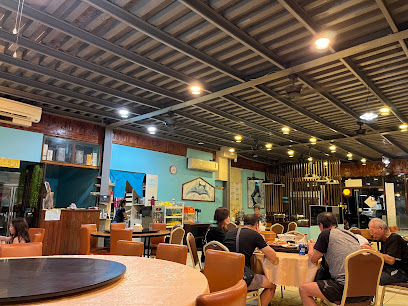
Palau Umi Korean and Japanese Cuisine
Experience the exquisite fusion of Korean and Japanese cuisine at Palau Umi in Koror, where every dish is crafted with passion and authenticity.
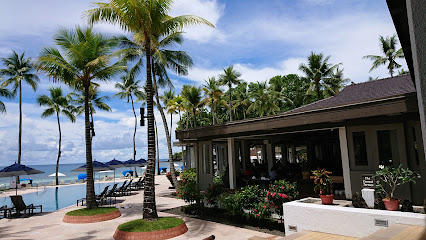
Red Rooster Cafe
Experience authentic Palauan cuisine at Red Rooster Cafe in Koror - a culinary haven for every food lover.
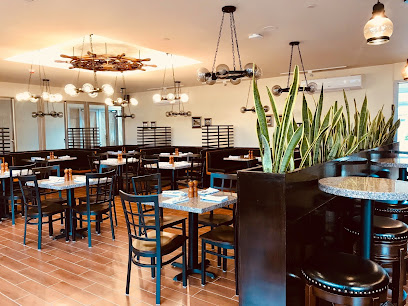
King Palace
Discover authentic Palauan cuisine at King Palace in Koror - where generous portions meet vibrant flavors.
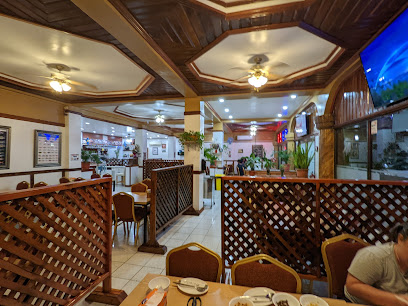
MJ Restaurant
Experience delightful dining at MJ Restaurant in Koror - where local flavors meet international cuisine in a cozy diner setting.
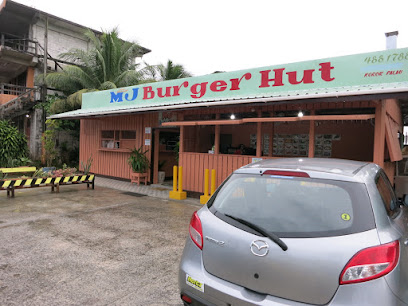
Krämer’s Bar and Restaurant
Discover exquisite flavors at Krämer’s Bar and Restaurant in Koror, Palau - where local meets international cuisine.
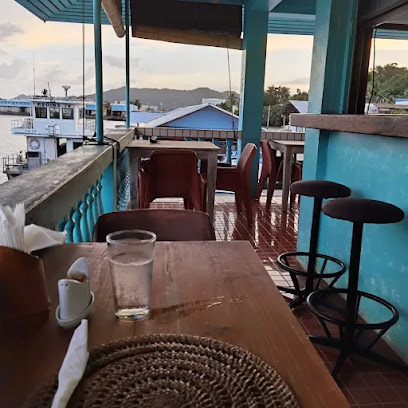
Riptide Beach Bar & Grill
Discover the flavors of Palau at Riptide Beach Bar & Grill - where great food meets stunning ocean views.
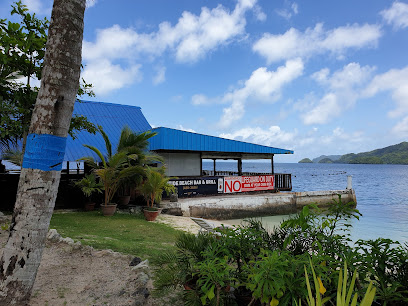
Markets, malls and hidden boutiques
Surangel and Sons Co. - Koror
Explore Surangel and Sons Co. in Koror for a unique shopping experience that showcases local culture and offers a variety of products to delight every traveler.
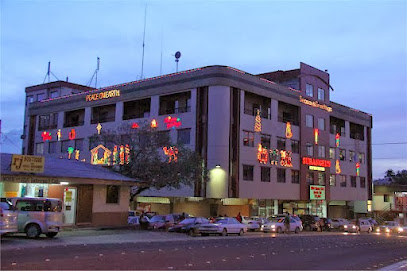
Rur Gift Shop & Cafe
Discover authentic local crafts and delicious café delights at Rur Gift Shop & Cafe in the heart of Koror, Palau.
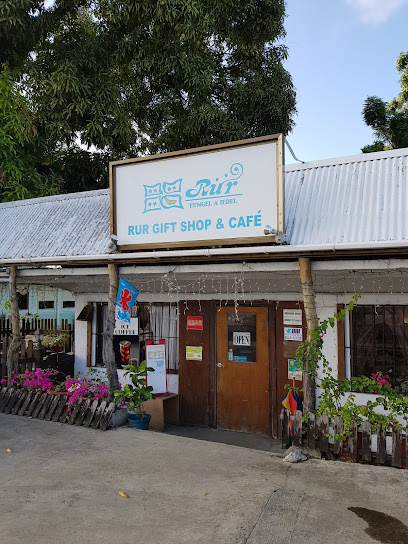
Ben Franklin Department Store
Discover the wide range of products at Ben Franklin Department Store, where local culture meets international shopping in the heart of Palau.
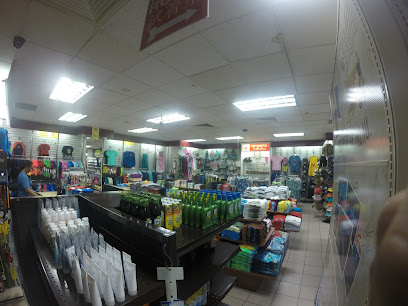
EXILE
Discover stylish apparel at EXILE in Koror, Palau, where fashion meets the vibrant island lifestyle.
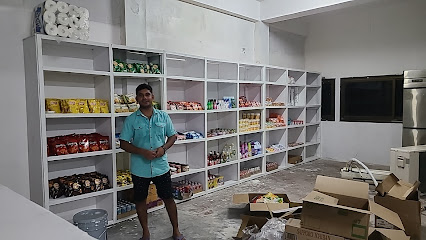
Amel Store
Discover the essence of Palauan culture at Amel Store, your go-to grocery store for local flavors and essentials in Ngerulmud.
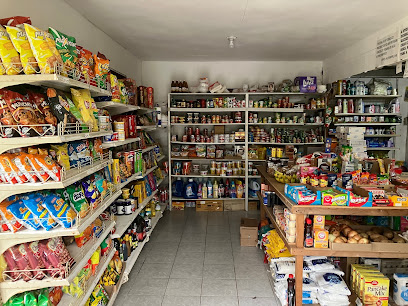
Globus Palau
Discover unique home goods and local treasures at Globus Palau in Koror, the perfect shopping destination for every traveler.
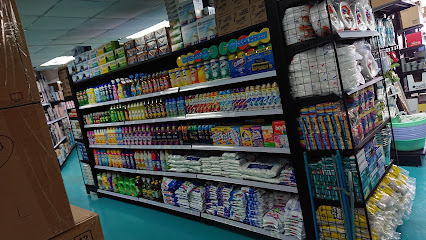
Lius Gift Shop
Explore Lius Gift Shop in Koror for unique souvenirs, tasty cookies, beauty products, and fashionable accessories that embody the spirit of Palau.
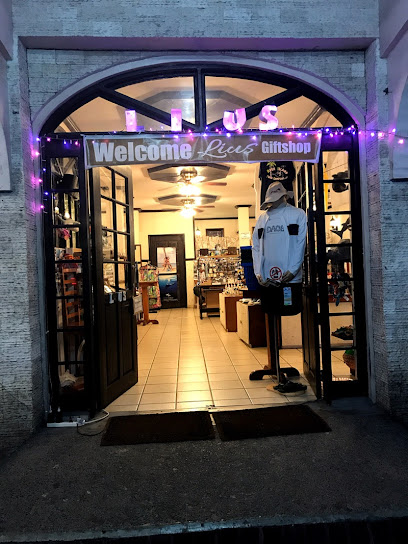
E&A Store
Discover the vibrant shopping experience at E&A Store in Melekeok, where local culture meets modern convenience in the heart of Palau.
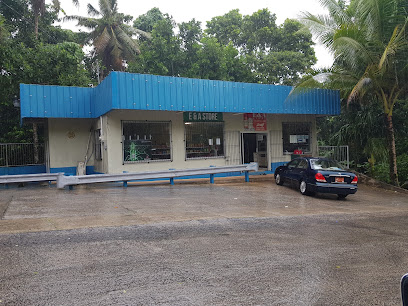
Palau Central Trading Co.
Explore Palau Central Trading Co. for unique gifts, local art, and gourmet treats in the heart of Koror – a must-visit for every traveler!
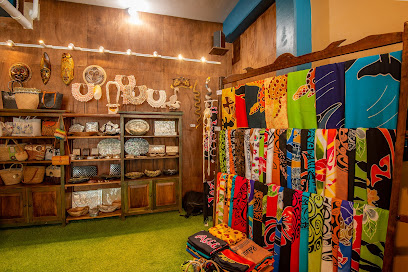
Community Store-2(CS-2)
Explore local flavors and essentials at Community Store-2 (CS-2), a charming grocery store in Airai, Palau, perfect for travelers seeking authentic experiences.

Kwik Mart
Discover convenience at Kwik Mart, your essential grocery stop in Koror, Palau, offering local flavors and friendly service.
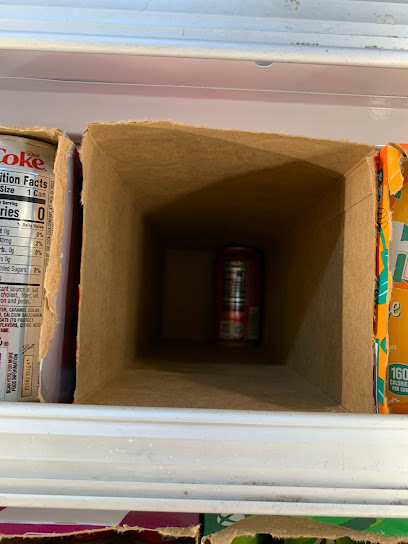
Capital Seaside Store
Discover unique Palauan handicrafts and souvenirs at the Capital Seaside Store, a vibrant shopping destination in Melekeok.
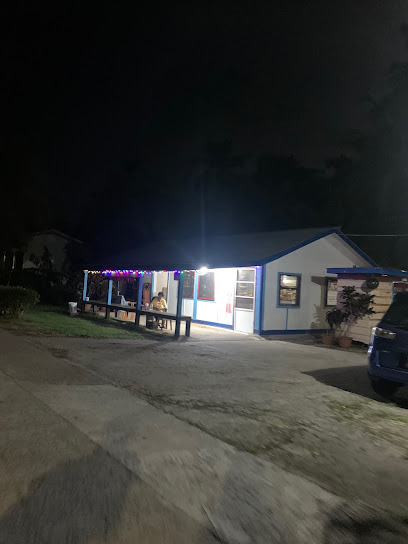
Jello's Fashion II
Explore Jello's Fashion II in Koror for a wide selection of snacks, drinks, and clothing at unbeatable prices, making it your ultimate convenience stop.

D.A store
Explore local flavors and essentials at D.A Store in Meyungs, Koror, your go-to grocery destination in Palau.
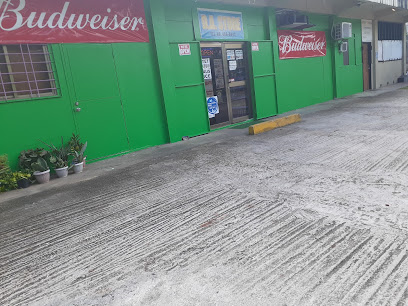
JMC One Stop Shop
Shop at JMC One Stop Shop in Koror for a unique blend of local and international clothing styles, perfect for every traveler.

Essential bars & hidden hideouts
Drop Off Bar and Grill
Experience the vibrant flavors of Palau at Drop Off Bar and Grill, a seaside dining gem in Koror offering fresh local cuisine and stunning ocean views.
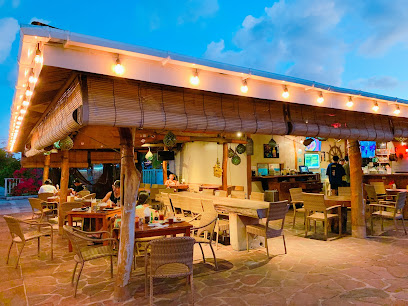
Elilai Seaside Dining
Experience exceptional seafood and fine dining with stunning ocean views at Elilai Seaside Dining in Koror, Palau.
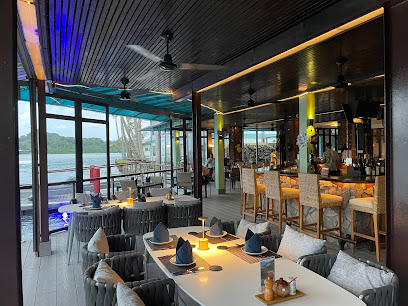
Tori Tori
Savor authentic Japanese flavors at Tori Tori in Koror, Palau, where fresh ingredients meet traditional culinary art.
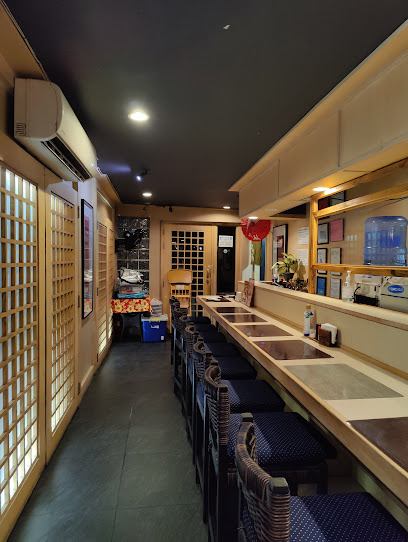
The Canoe House
Discover vibrant nightlife at The Canoe House, where delicious cuisine meets lively entertainment in the heart of Koror, Palau.
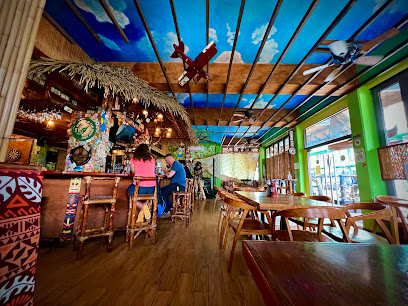
Red Rooster Cafe
Experience the rich flavors of Palau at Red Rooster Cafe, a culinary haven in Koror offering authentic local cuisine and a warm atmosphere.
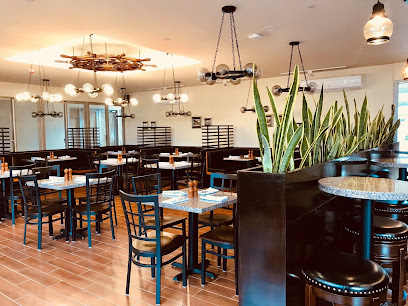
Krämer’s Bar and Restaurant
Discover the culinary delights of Palau at Krämer’s Bar and Restaurant, where local flavors meet international cuisine in a vibrant atmosphere.
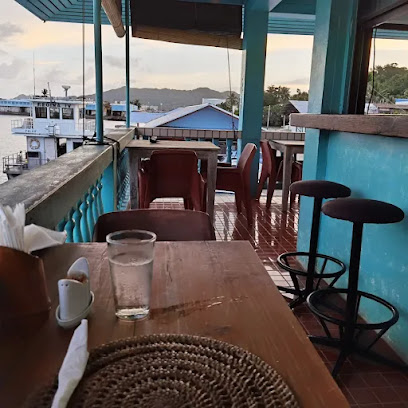
Riptide Beach Bar & Grill
Discover the vibrant flavors and stunning views at Riptide Beach Bar & Grill, your tropical escape in Koror, Palau.
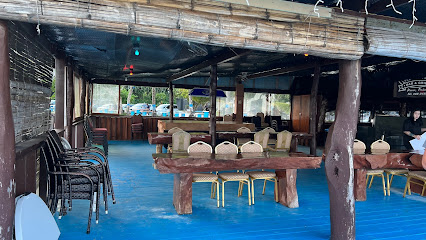
Barracuda Restaurant
Discover the culinary delights of Barracuda Restaurant in Koror, Palau, where local flavors and a casual atmosphere come together.
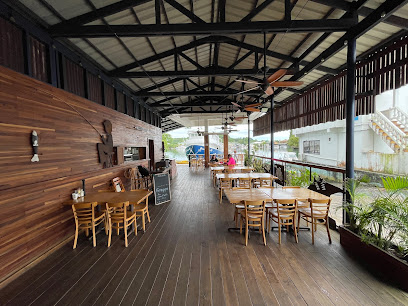
Hungry Marlin Restaurant & Bar at COVE Resort Palau
Experience the freshest seafood and breathtaking views at Hungry Marlin Restaurant & Bar in COVE Resort Palau.
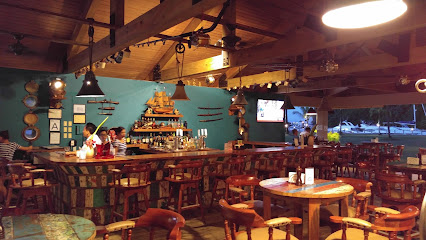
The Salad Bar
Discover the taste of health at The Salad Bar in Koror, offering fresh, nutritious meals that energize your Palau adventures.
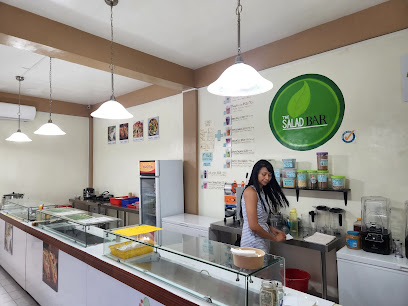
Executive Lounge
Discover the Executive Lounge in Koror, Palau - a culinary gem offering breathtaking views and an exquisite menu for every palate.
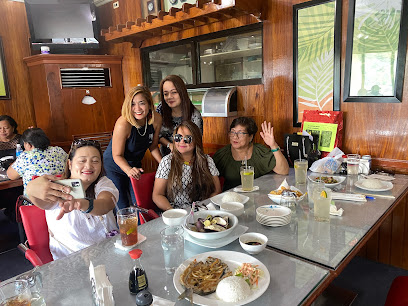
Bottom Time Bar and Grill
Experience the taste of Palau at Bottom Time Bar and Grill, where local flavors meet tropical charm in Koror.
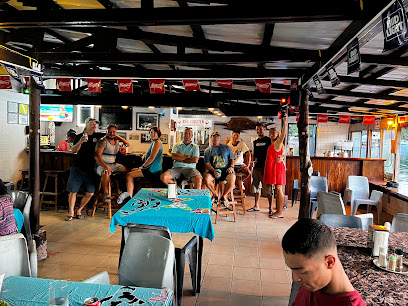
Jungle Bar
Discover the vibrant flavors and tropical ambiance of Jungle Bar in Koror, Palau - a must-visit restaurant for tourists looking for a local culinary experience.
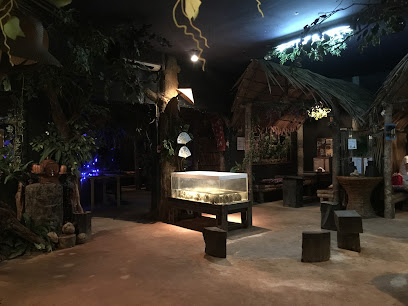
Weltz Bar at the Palasia Hotel
Experience tropical elegance at Weltz Bar in the Palasia Hotel, where exquisite drinks and stunning views create unforgettable memories.
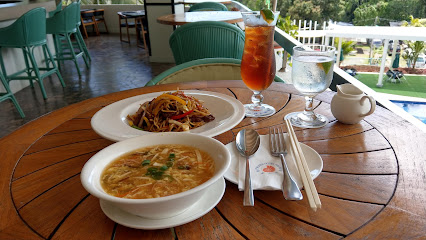
The Republic Restaurant & Bar
Experience the vibrant nightlife and exquisite flavors at The Republic Restaurant & Bar, Koror's premier dining destination.

Local Phrases about Aimeliik
-
- HelloAlii
[ah-LEE] - GoodbyeKedou
[keh-DOH] - YesOngalek
[ohn-gah-lek] - NoAteklek
[ah-teh-klek] - Please/You're welcomeChad ra beluu
[chahd rah bel-OO] - Thank youUngil tutau
[OONG-eel TOO-tow] - Excuse me/SorryKmal mesulang
[kem-MAHL meh-SOO-lahng] - How are you?Kmal mesulang
[kem-MAHL meh-SOO-lahng] - Fine. And you?Ng diak el kmo a rengalek
[ng dee-ahk el kmo a rehn-gah-lek] - Do you speak English?Mlechell ra beluu
[meh-LEH-chell rah bel-OO] - I don't understandDiak lechad
[dee-ahk leh-chahd]
- HelloAlii
-
- I'd like to see the menu, pleaseMlechell a rechad er a menu
[meh-LEH-chell ah reh-chahd er ah meh-NOO] - I don't eat meatDiak mlekebliich a ungil
[dee-ahk mleh-keh-BLEECH ah OONG-eel] - Cheers!Ungil tutau
[OONG-eel TOO-tow] - I would like to pay, pleaseMlechell a rechad er a bils
[meh-LEH-chell ah reh-chahd er ah beelz]
- I'd like to see the menu, pleaseMlechell a rechad er a menu
-
- Help!Ng diak
[ng dee-ahk] - Go away!Mla mo chad
[mah mo chahd] - Call the Police!Mlechell a rechad er a kall
[meh-LEH-chell ah reh-chahd er ah kahl] - Call a doctor!Mlechell a rechad er a daktor
[meh-LEH-chell ah reh-chahd er ah dahk-tohr] - I'm lostDiak lucheb
[dee-ahk loo-chehb] - I'm illDiak beches
[dee-ahk beh-chehs]
- Help!Ng diak
-
- I'd like to buy...Mlechell a rechad er a...
[meh-LEH-chell ah reh-chahd er ah...] - I'm just lookingA sebechel a mlechell
[ah se-beh-chell ah meh-LEH-chell] - How much is it?Ke kau a rurt er?
[keh kow ah roo-rt er] - That's too expensiveA rengalek a kekerei
[ah rehn-gah-lek ah keh-keh-ray] - Can you lower the price?Mlechell a rechad er a turk er a beluu?
[meh-LEH-chell ah reh-chahd er ah toork er ah bel-OO]
- I'd like to buy...Mlechell a rechad er a...
-
- What time is it?Ke kau a kmal meral diak?
[keh kow ah kmaahl MEH-rahl dee-ahk] - It's one o'clockA omech er a klukuk
[ah oh-mehch er ah kloo-kook] - Half past (10)A kmal meral a tekoi
[ah kmaahl MEH-rahl ah teh-KOY] - MorningA dengua
[ah dehn-gwah] - AfternoonA remuul
[ah reh-mool] - EveningA dengua
[ah dehn-gwah] - YesterdayA dengua el kmo
[ah dehn-gwah el kmo] - TodayA diak el kmo
[ah dee-ahk el kmo] - TomorrowA beches el kmo
[ah beh-chehs el kmo] - 1Omechel a mlai
[oh-MEH-chell ah MEH-lai] - 2Omechel a dil
[oh-MEH-chell ah deel] - 3Omechel a telu
[oh-MEH-chell ah TEH-loo] - 4Omechel a lel
[oh-MEH-chell ah lehl] - 5Omechel a lima
[oh-MEH-chell ah LEE-mah] - 6Omechel a ono
[oh-MEH-chell ah OH-noh] - 7Omechel a fitu
[oh-MEH-chell ah FEE-too] - 8Omechel a valu
[oh-MEH-chell ah VAH-loo] - 9Omechel a sia
[oh-MEH-chell ah SEE-ah] - 10Omechel a sils
[oh-MEH-chell ah seels]
- What time is it?Ke kau a kmal meral diak?
-
- Where's a/the...?Ke kau a...
[keh kow ah...] - What's the address?Ke kau a kmal meral el chad er a...
[keh kow ah kmaahl MEH-rahl el chahd er ah...] - Can you show me (on the map)?Mlechell a rechad er a kmal meral el chad er a...
[meh-LEH-chell ah reh-chahd er ah kmaahl MEH-rahl el chahd er ah...] - When's the next (bus)?Ke kau a kmal meral el...
[keh kow ah kmaahl MEH-rahl el...] - A ticket (to ....)A bils er a...
[ah beelz er ah...]
- Where's a/the...?Ke kau a...
History of Aimeliik
-
Aimeliik, situated on the western coast of Babeldaob Island, is known for its ancient settlements that date back to around 1000 AD. The area was a pivotal location for early Palauan societies due to its fertile lands and strategic coastal position. Archaeological findings, including pottery shards and ancient tools, provide insight into the daily lives and advanced skills of these early inhabitants.
-
Aimeliik is home to some of the most well-preserved 'Bai'—traditional Palauan meeting houses. These structures, often elaborately decorated with intricate carvings and paintings, were central to the social and political life of the community. The Bai served as the meeting place for the village chiefs and elders to discuss important matters and make decisions that affected the entire community.
-
During World War II, Palau, including Aimeliik, was occupied by Japanese forces. The remnants of this era are visible in various parts of Aimeliik, including old military bunkers and airstrips. This period significantly impacted the local culture and economy, and the legacy of this occupation is still a topic of study and remembrance in Aimeliik today.
-
The residents of Aimeliik have a rich tradition of agriculture, particularly in taro cultivation. The terraced taro fields, which are meticulously maintained, are a testament to the ingenuity and sustainability of traditional Palauan farming practices. These fields not only provide a staple food source but also play a crucial role in the cultural heritage of Aimeliik.
-
Aimeliik is known for its vibrant cultural festivals, which celebrate Palauan traditions, dance, music, and food. These events are often held in conjunction with national holidays and are a vital part of preserving and promoting the cultural identity of the community. Visitors to Aimeliik can experience firsthand the rich tapestry of Palauan cultural expressions during these lively festivals.
-
In recent years, Aimeliik has seen significant developments in infrastructure and tourism. The construction of better roads, improved public facilities, and eco-friendly tourism initiatives are aimed at making Aimeliik more accessible while preserving its natural and cultural heritage. These developments are part of a broader effort to balance modernization with the conservation of Aimeliik's unique historical legacy.
Aimeliik Essentials
-
Aimeliik is located on the western side of Babeldaob Island in Palau. The main gateway to Palau is Roman Tmetuchl International Airport (ROR) in Airai, about 25 kilometers from Aimeliik. From the airport, you can rent a car or take a taxi to Aimeliik. There are no direct public transportation options from the airport to Aimeliik, so pre-arranging your transportation is advisable.
-
The best way to get around Aimeliik is by renting a car, as public transportation options are limited. Taxis are available but can be pricey due to the limited number of operators. Renting a bicycle is also an option for short trips or for exploring the local area. If you're staying at a resort, check whether they offer shuttle services to nearby attractions.
-
The official currency of Palau is the United States Dollar (USD). Credit cards are accepted in most hotels, restaurants, and larger shops, but it's a good idea to carry some cash for smaller establishments and local markets. ATMs are available, but it's recommended to withdraw sufficient cash in Koror before traveling to Aimeliik.
-
Aimeliik is generally a safe destination for tourists. However, it's always wise to take standard precautions such as avoiding isolated areas at night and keeping an eye on your belongings in crowded places. There are no specific high-crime areas targeting tourists, but staying vigilant is always a good practice.
-
In case of emergency, dial 911 for immediate assistance. Aimeliik has local police and medical facilities, but for more serious medical issues, you may need to travel to Koror. It's highly recommended to have travel insurance that covers medical emergencies. Pharmacies are available for minor health needs.
-
Fashion: Do dress modestly, especially when visiting cultural sites. Avoid wearing overly revealing clothing. Religion: Do show respect for local customs and traditions. Public Transport: Do be respectful and patient; public transport is limited, so plan accordingly. Greetings: Do greet people with a smile and a friendly hello. Eating & Drinking: Do try local dishes and be open to new culinary experiences. Don’t waste food as it is considered disrespectful.
-
To experience Aimeliik like a local, visit the traditional bai (meeting houses) to learn about Palauan culture. Engage with locals, who are often friendly and eager to share their knowledge about the area. Don't miss exploring the ancient stone monoliths and terraces, which are significant archaeological sites. For a unique experience, join a local fishing or farming activity to get a taste of daily life in Aimeliik.
Nearby Cities to Aimeliik
-
Things To Do in Ngchesar
-
Things To Do in Airai
-
Things To Do in Ngaremlengui
-
Things To Do in Koror Town
-
Things To Do in Koror
-
Things To Do in Melekeok
-
Things To Do in Ngerulmud
-
Things To Do in Ngardmau
-
Things To Do in Ngaraard
-
Things To Do in Yap
-
Things To Do in Siargao
-
Things To Do in Davao City
-
Things To Do in Cagayan de Oro
-
Things To Do in Camiguin
-
Things To Do in Bohol





